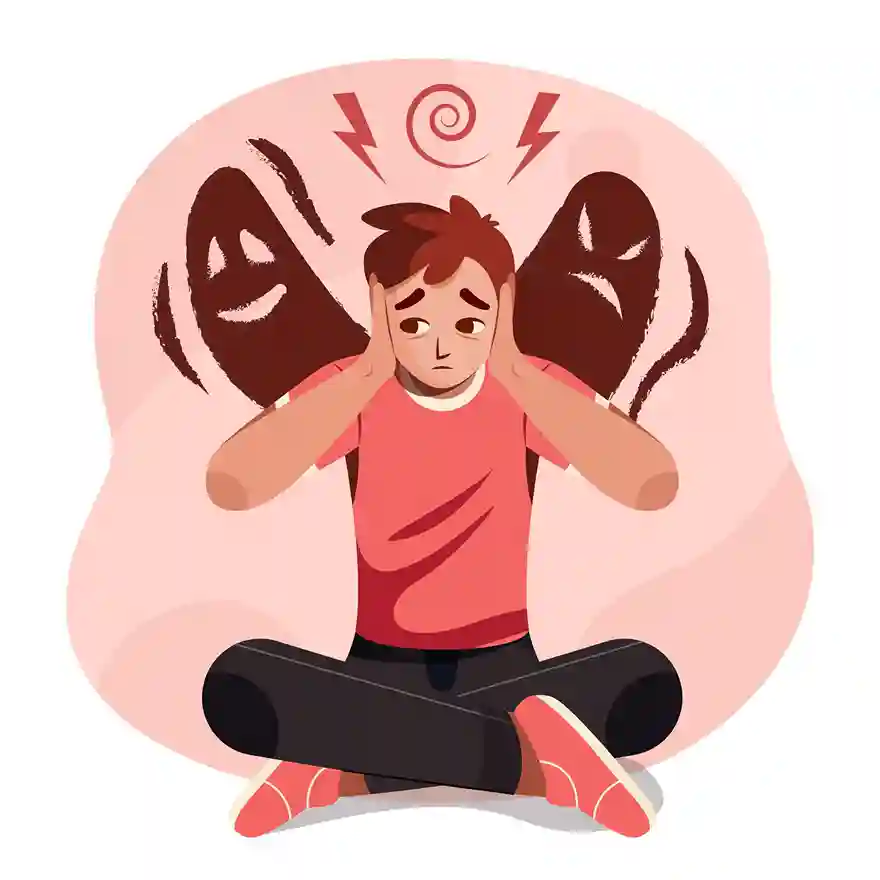Many use the word ego when talking about self-help, but not too many understand its impact on our everyday lives. If allowed growing unchecked, an unhealthy ego may end up negatively affecting your relationships, blocking your development and making you live in denial. This article will go into what an unhealthy ego is, how it appears in daily habits and what actions can help you heal it.
No matter if you’re seeking self-knowledge, self-improvement or emotional growth, spotting the symptoms of an unhealthy ego matters a lot. Actually, these issues are more frequent than you might believe.
What Is an Unhealthy Ego?
We should understand what an unhealthy ego is before identifying the warning signs.
The ego, as described in psychology, connects what you are conscious of to what is unconscious. One’s gender helps shape who we think we are. If your ego is healthy, you will be able to feel confident, decide on things, and set clear limits. However, if our sense of self gets too big or too sensitive, this actually becomes an unhealthy ego.
An unhealthy ego can cause you to think you’re never at fault, are always above everyone else, or believe that life is always wronging you, misunderstanding your actions. Fear and insecurity are what mostly fuel an unhealthy ego.
Why It’s Dangerous to Ignore an Unhealthy Ego
f it is not controlled, an unhealthy ego may stop you from reaching your potential. Here’s how:
- Relationships do not feel genuine because of this.
- This makes people consistently look for others’ approval.
- It allows you to stay in habits that damage your life.
- It stands in the way of knowing and caring about ourselves.
Putting off facing your unhealthy ego is the same as driving with a cloudy windshield—you’ll move ahead but won’t be able to see clearly, and you’ll likely end up crashing.
7 Signs You’re Dealing with an Unhealthy Ego
1. You Always Need to Be Right
One of the best ways to identify an unhealthy ego is by how much someone wants to be proven correct. If small disagreements turn into big fights or you can’t take helpful feedback, your ego might be the problem.
Wanting to appear correct is driven by a fear of being seen as weak or less smart. But actually, if you are unwilling to consider other opinions, it will make you less flexible and disconnected from other people.
2. You Constantly Compare Yourself to Others
Unhealthy egos often compare yourself with others, which leads to stealing happiness from us. Aiming to measure yourself by others, such as watching your friends or learning from colleagues, is a warning not to take it further.
Instead of working on your own growth, an unhealthy ego makes you compare yourself to others, causing you to feel jealous or envious all the time.

3. You Struggle to Apologize or Admit Fault
Not admitting when you’re wrong can sometimes be a sign that pride is actually a fragile ego. An unhealthy ego tends to see apologies as weaknesses, when in fact they demonstrate a person’s maturity and ability to be strong.
When your response to problems is always shifting the blame or defending your actions, you need to consider how your ego is interrupting your relationships and growth.
4. You Take Things Too Personally
Taking neutral or beneficial/constructive criticism personally is another indicator of an unhealthy ego. Are you easily hurt or rejected, even in cases where people are not trying to mean it? Perhaps this may be your ego in defense mode.
The effect of this hypersensitivity is the production of unwarranted drama and emotional upheavals; hence, it is more difficult to develop and relate with other people in a deeper sense.
5. You Crave Recognition and Validation
Although it is not surprising that everyone wishes to feel valued, such constant dependence on a feeling of appreciation is a sign of an unhealthy ego. When you are not regularly praised or recognized, you may feel lost, worried, or even useless.
Such neediness places you at the mercy of others, making you easily manipulated and burnt-out.
6. You Fear Being Vulnerable
Creativity, connection, and courage come out of vulnerability. But to the unhealthy ego, it is perceived as a menace.
In case you are not able to open up, make corrections, or seek assistance, then your ego is likely protecting you by perceiving judgment or failure. By doing so, it also bars you from real-life experiences and quality relationships.
7. You Avoid Self-Reflection
This is because an unhealthy ego does not like introspection, as it makes you face some unpleasant truths. Persons whose egos are very bloated or weak frequently entertain themselves with branches of noise, social media, work, etc., anything that prevents them from inner perception.
However, it cannot be called growth without self-reflection. You will be trapped in anti-modern schemes and will not be able to change.
How to Heal an Unhealthy Ego
One should understand that he or she has an unhealthy ego. It is a process of healing, and therefore patience, compassion, and courage are needed with healing it. And this is how you can start:
1. Practice Mindfulness
Mindfulness assists you to notice what you are thinking and feeling without judging. Once you get to know over which aspects of the situation you are reacting as a result of your ego, you can decide how to act instead of react.
Five minutes of meditation, daily journaling, or even a check-in every day can go a long way in ensuring that you are managing your unhealthy ego.
2. Embrace Humility
Humility doesn’t mean thinking less of yourself—it means thinking of yourself less. Humility is an antidote to an unhealthy ego and enables you to listen more, learn more, and develop more without ever needing others to applaud you constantly.
Ask questions. Be honest when you do not know something. Admit you were wrong and you were sorry. That is how we develop beyond the illusions that our ego creates.
3. Seek Constructive Feedback
Develop a system of feedback with your trusted people. Ask for candid judgments and be receptive to what you get told. The practice enables you to discover blind spots and improves emotional resilience.
An unhealthy ego is scared of feedback, whereas a healthy one takes advantage of it and becomes bigger and better.
4. Detach From Outcomes
When your self-esteem is always identified by certain results, such as your work position, number of followers, or what others think about you, your ego is in the driver’s seat. Separate yourself from these outcomes and concentrate on the process.
The authentic means of valuing oneself is the inner, self-sufficient property. It is important to learn how to do away with the external measurements in order to unravel your unhealthy ego.
5. Engage in Acts of Service
Helping others without expecting anything in return naturally quiets the unhealthy ego. It shifts your focus from “me” to “we,” fostering empathy and connection.
Volunteer, mentor, or simply listen with intention. These small acts can lead to profound inner peace and greater self-awareness.
6. Surround Yourself with Grounded People
Your environment influences your mindset. Surround yourself with people who are humble, reflective, and emotionally intelligent. These individuals can help keep your unhealthy ego in check and inspire you to grow.
Avoid circles where superficial success and ego-validation are the norm. Instead, seek depth and authenticity.
The Transformational Power of Letting Go
Letting go of an unhealthy ego doesn’t mean losing your identity. On the contrary, it means reconnecting with your true self—the version of you that is confident yet humble, strong yet compassionate.
You’ll start experiencing:
- Healthier relationships
- Greater emotional intelligence
- Increased self-awareness
- A deeper sense of peace and purpose
It’s not about eliminating the ego—it’s about reshaping it to support, not sabotage, your growth. Once you make peace with your unhealthy ego, you stop being driven by fear and start living with intention and integrity.
Final Thoughts: Choose Growth Over Ego
The path to self-improvement is never linear, and the unhealthy ego will resist change at every turn. But the more you become aware of its influence, the more power you reclaim over your life.
Don’t let ego-driven fears and illusions dictate your story. Choose curiosity over certainty. Connection over control. Growth over pride.
Because in the end, healing your unhealthy ego isn’t about becoming less—it’s about becoming more of who you truly are.
FAQs About Unhealthy Ego
1. What causes an unhealthy ego?
An unhealthy ego often develops from unresolved childhood trauma, low self-esteem, or cultural and societal conditioning. It serves as a defense mechanism to protect one’s self-image but can become destructive when overused.
2. Can someone have both a healthy and unhealthy ego?
Yes. Everyone has a mix of both. The goal is not to eliminate the ego entirely but to ensure it doesn’t dominate your thoughts, decisions, or relationships.
3. Is an unhealthy ego the same as narcissism?
Not exactly. While narcissism involves an inflated sense of self, an unhealthy ego can also manifest as excessive self-doubt or victimhood. Narcissism is a more extreme and clinical condition.
4. How do I know if my ego is healthy?
A healthy ego allows you to accept feedback, show vulnerability, admit mistakes, and celebrate others’ successes without feeling threatened. It supports growth rather than inhibits it.
5. How long does it take to heal an unhealthy ego?
It varies for everyone. With consistent mindfulness, self-reflection, and support, significant progress can happen in months. But like any personal development journey, it’s an ongoing process.
Want more insights like this? Bookmark this article and share it with someone who may be unknowingly letting their unhealthy ego lead their life. Awareness is the beginning of transformation.

